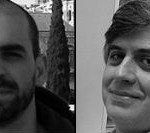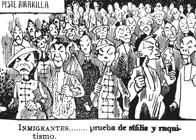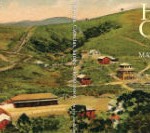April 1, 2024
Sixty years ago, between March 31 and April 1, 1964, the Brazilian military, with significant support from part of civil society, began mobilizing its troops to carry out a coup. The military overthrew the democratically elected president, João Goulart. For the next 21 years, five generals succeeded each other in a regime that persecuted, arrested, and killed opponents with the motto “Brazil: love it or leave it.”

Police repression of a protest held on June 21, 1968, in Rio de Janeiro during the Brazilian military dictatorship. The episode is known as Bloody Friday. Photo: Evandro Teixeira/Archive Instituto Moreira Salles
We have prepared a selection of articles already published in HCS-Manguinhos that explore different aspects related to this period. Topics include the developmental policies of the Brazilian civil-military dictatorship and the debates on agrochemicals regulation; psychoanalysis during the Brazilian military dictatorship (1964-1985); protest songs, a Brazilian musical genre characterized by a social criticism of military rule; and the absence of the Brazilian delegation in the Alma-Ata conference on primary health care in 1978.
Pesticide Production and Consumption in Brazil, 1975-1985 This article relates the Brazilian Program of Agricultural Defensives (1975-1980) with the developmental policies of the Brazilian civil-military dictatorship and the debates on agrochemicals regulation.
Psychoanalysis during the Brazilian military dictatorship. The dossier Psy cultures: psychoanalysis, subjectivity and politics (HCSM vol.24 supl.1, 2017) features a paper about Psychoanalysis during the Brazilian military dictatorship (1964-1985). It examines the position of Brazilian psychoanalytical societies and psychoanalysts in the 1970s and concludes that the discourse of neutrality dominated psychoanalysis over this period.
The Brazilian absence at Alma Ata conference in 1978 More than three thousand delegates from different countries gathered at the meeting on Primary Health Care. Brazil, still under military rule, did not participate. In an article in HCS-Manguinhos, Fernando Pires-Alves and Carlos Henrique Assunção Paiva discuss the reasons and implications.
Rice, beans, Coca-Cola, and music: This article reflects on how the themes of food and drinks are addressed in the so-called protest song, a Brazilian musical genre characterized by a social criticism of military rule.
Sixty years ago, the military overthrew the democratically elected president, João Goulart.










